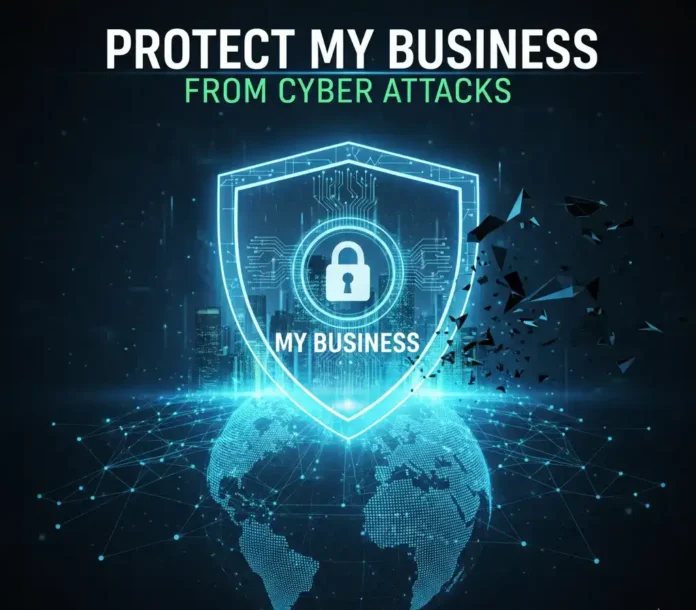Cyber attacks are no longer just a problem for big corporations. Small and medium-sized businesses are now top targets too. Hackers know many smaller companies don’t have the same level of protection, making them easier to exploit. The truth is, every business that uses the internet is at risk. But with the right mindset and precautions, you can defend your company before it becomes a victim.
Understand the Threats
The first step to protecting your business is understanding the types of cyber attacks that exist. Phishing emails, ransomware, data breaches, and malware are among the most common. These threats can steal sensitive information, freeze systems, and even damage your reputation.
Hackers often disguise themselves as trusted contacts or use fake websites to trick employees into revealing passwords. Others may inject malicious code into downloads or attachments. Knowing how these attacks work helps you build stronger defenses.
Train Your Team
Your employees are your first line of defense. A single mistake, like clicking on a suspicious link, can open the door to a serious breach. Make cybersecurity training a regular part of your business routine.
Teach your team how to identify fake emails, avoid unsafe websites, and create strong passwords. Encourage them to report anything that feels off. You can even run short security quizzes or phishing simulations to keep everyone alert.
The goal isn’t to make your staff paranoid. It’s to build awareness and confidence so they know how to react if something suspicious happens.
Use Strong Passwords and Multi-Factor Authentication
Weak or reused passwords are one of the biggest security risks. Every account should have a unique, strong password with a mix of letters, numbers, and symbols.
Take it a step further by enabling multi-factor authentication. This adds an extra layer of security by requiring a second form of verification, such as a text message or authentication app. Even if someone steals a password, they can’t easily access the account without that second code.
Keep Software and Systems Updated
Outdated software is one of the easiest ways for hackers to get in. Cybercriminals take advantage of old security flaws to breach systems. Always update your operating systems, apps, and antivirus software as soon as updates are available.
It’s also a good idea to schedule regular system checks. Automate updates where possible so you never miss one. If your business uses multiple devices, assign someone to monitor updates across all company tech.
Secure Your Network
Your company’s network is like the front door to your digital world. Make sure it’s locked. Use firewalls to block unauthorized access and encrypt your Wi-Fi connections.
If your employees work remotely, use virtual private networks (VPNs) to keep data safe. A VPN creates a secure tunnel between the user and your company network, protecting sensitive information from prying eyes.
Also, limit access to important data. Not every employee needs full access to every file. Set permissions based on role and responsibility.
Back Up Your Data
No system is completely safe. That’s why backups are essential. Regularly back up your files to secure cloud storage or an offline device. In case of a cyber attack or system failure, you can restore important data quickly.
Automate your backups to run daily or weekly. Test them occasionally to make sure they’re working correctly.
Use Trusted Hardware and Devices
The type of equipment you use also affects your security. Cheap or outdated hardware can have vulnerabilities that hackers exploit. Always choose reliable, secure devices for your business operations.
If you’re looking for affordable options to upgrade your tech, consider checking out a TravelCash currency exchange in Hereford when sourcing or travelling for business-related purchases abroad. Managing your budget efficiently, even when investing in better hardware, helps keep your financial and digital operations secure. The point is to invest in trusted, quality devices rather than unverified hardware that could put your network at risk.
Have a Response Plan
Even the best defenses can’t stop every attack. That’s why every business should have an incident response plan. Know who to contact, what systems to shut down, and how to communicate with clients if something goes wrong.
Assign clear roles to your team so everyone knows what to do. Quick action can make a huge difference in minimizing damage and recovery time.
Final Thoughts
Cybersecurity isn’t just an IT issue. It’s a business survival issue. The more you understand and prepare, the safer your company will be.
Protecting your business from cyber attacks takes time, effort, and awareness. But it’s worth it. From training your team to securing your devices, each step strengthens your defenses.
Stay alert, stay informed, and never assume your business is too small to be a target. In the digital world, security is everyone’s responsibility.



































